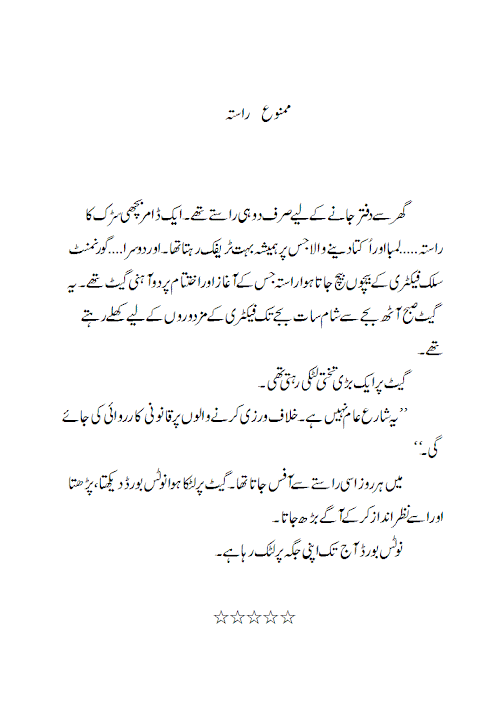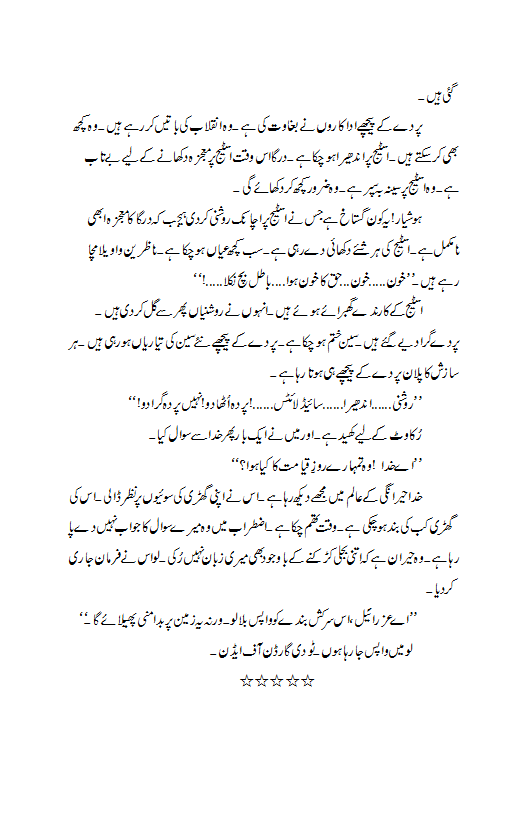Due to the sudden eruption of militancy in the valley, the office could not function in Srinagar, so it was shifted to Jammu. Being the headquarters of the entire circle, all other offices were getting affected. The orders to this effect had been obtained from Delhi. However, the problem was where to accommodate the office. Ultimately, it was decided to accommodate everybody in a departmental building next to the railway station, where some spare accommodation was available, though not sufficient for all eighty officials.
The most noteworthy thing was the cooperation received from the Staff. I, on my part, gave them a pep talk and convinced them that at such a juncture, all of us were expected to adapt to the changed circumstances and work with utmost devotion and dedication. Nobody should expect the same facilities as were available before migration. With faces crestfallen and the future uncertain, they readily agreed.
We lost no time in reorganising our office. Everyone accepted smaller tables and even occupied the corridors of the building in the absence of sufficient space. I too chose a small room for myself facing the railway track. I personally supervised the interior decoration of the room. Opposite the entrance door on the far end, a writing table and a revolving chair were placed, while a sofa set shifted from the valley, along with office records, was adjusted against the wall to the left of the table. Two more chairs were kept on the other side of the table for the guests. A large-sized photograph of Mahatma Gandhi, the father of the nation, was hung on the wall opposite the window facing the railway platform. The window was overlooking a large tract of fallow land beyond the railway track with bristly cacti everywhere, stray cattle searching for food under the scorching sun and dogs scavenging garbage and human excreta. Early in the morning, you could see some poor urchins defecating here and there.
This was a scenery which we were not accustomed to in the valley. On the other side of the Pir Panchal range, there used to be greenery everywhere, the windows of our office overlooking beautiful gardens with majestic chinars, upright poplars and fragrant magnolias. Roses, tulips, dahlias, pansies, sweet williams, lilies, foxgloves, wall flowers, antirrhinums and petunias greeted us as we entered our office premises during spring, while chrysanthemums, zinnias and marigolds bloomed in the garden during autumn. On the contrary, neither a cool morning breeze greeted us here nor cool shades were available under majestic Chinars to rest underneath after lunch. There was no cold, fresh water piped directly from the royal spring of Chashma Shahi into our taps here. It was a different world altogether.
A few glass panes of windows in my room were broken. Nobody had enough time to attend to them, as there were many more urgent jobs to attend to. Hot and dusty winds blew across them and at times produced a burning sensation on my cheeks.
One day, while sitting in my chair, I spotted a sparrow darting down from the blue expanse outside with a dry twig in its beak. It sat on the window bar for a while and then flitted across the room to deposit the twig behind Gandhiji's photograph. Following the little creature came another sparrow with yet another piece of straw in its mouth, and it followed suit. I guessed they must be male and female sparrows. God only knew when they had decided to live together and make a nest for themselves behind the photograph of Gandhiji. A nest where they would spend an entire season together, mate during the forthcoming rainy season, lay eggs, hatch them, see young chicks popping out their tiny beaks and feed them till they would take to their wings. They flew time and again in search of material for building their nest, besides collecting food for themselves. On their return, they deposited tiny pieces of straw, blades of soft grass, wool, cotton flakes and moulted feathers of other birds behind the photograph, unmindful of my presence. At times, I watched these harmless weavers closely and intensely and appreciated their skill and patience.
The sparrows had migrated from some far-off place where they could not withstand adverse climatic conditions. They were eager to cohabit since the monsoon was fast approaching. While watching them, I felt that building a nest was as instinctive as eating, breathing or drinking among animals. Day in and day out, I saw these two tiny creatures building their nest straw by straw. They collected dry twigs, pieces of bark and straw, cotton wool, fallen dry leaves and bird feathers from places far and near and brought them along into the room with a sense of elation and anticipation. Many a time, they sat on the window rail and looked towards the nest with eagerness and urgency. In the process, more often than not, they forgot their own exhaustion. The very idea of a comfortable nest with their offspring protruding their small beaks evaporated whatever weariness they had felt, and this made them redouble their efforts. As a result, it dawned upon me that it was not only human beings who dreamt of a sweet home but birds too enjoyed the idea of a nice home of their own.
The two weavers kept weaving their nest meticulously with all finesse, intertwining the warp and the weft with dry grass blades and straw. In addition, they used cotton wool and animal hair for cushioning the interior of the nest so as to give it a soft, velvety touch. Simultaneously, they started to live in the nest, though their efforts to embellish it still continued. Gradually, I became accustomed to their presence and lost interest in their untiring activity.
Nature rewarded them soon thereafter with bounteous monsoons. The atmosphere was filled with songs of Koel, the croaking of frogs and the shrills of cicadas. There was romance everywhere. Young maidens riding on the swings welcomed the showers. Not to be left behind, the he-sparrow started petting and necking the she-sparrow with his tiny beak, often spreading his wings as wide as possible to impress upon the sweetheart his virility. After assuring himself that his female partner was ready to receive him, he rode on her back while twitching his tail. For both of them, there could be no better moment of ecstasy than this one.
After some time, I had to go on leave for about a week and could not keep track of these two little birds who had taken refuge in my room to make love. My room remained closed during the week. The two lovers had their heyday in my absence. No watchful human eyes pursued them any longer. There was no human interference whatsoever, and apparently, they had a really good time. They may have thought that I had abandoned the room forever. They sat wherever they liked - on the blade of the fan, on top of the writing table and on the arms of the chairs. Twigs, straws and feathers were strewn all over, and the room was littered with offensive-smelling droppings of these birds.
After spending the week on leave, I was eager to join my office and therefore, reached my office early in the morning. Nobody had yet come to the office except the chowkidar and the sweeper. I asked the chowkidar to open my room. As I entered the room, I was horrified to see its condition. There were pieces of straw, feathers and twigs strewn everywhere. Worse still, the excrement of the two birds was noticed in many places, especially on the upholstery of the sofa and the chairs beside the glass top of the table. I stared helplessly and did not know how to react. Slowly, the anger welled up inside me and I was beside myself with rage. I immediately called the sweeper and ordered him to clean the room. As if that was not enough, I asked him to remove the nest from behind the photograph. The sweeper had a look at the nest and found eggs laid in it.
He reported back to me, “Sir, the nest has many eggs inside it, and it would be a sin to throw the nest away.” He was too religious to think of destroying a nest having eggs in it.
I could notice from his face that he was reluctant to carry out my orders and therefore did not press for the same, as it could hurt his religious sentiments. So I myself removed the nest from behind the photograph and threw it out of the window. The tiny eggs broke open as soon as they landed on the ground, and the fluid in them oozed out and spread over the surface. The chowkidar and the sweeper kept looking helplessly. So did the Mahatma from behind the glass frame.
I left the room for the sweeper to clean and mop it, besides dusting the furniture. As soon as he reported the completion of the work, I returned and took my seat in the chair to dispose of the office files.
About an hour must have passed, the she-sparrow came flying down from the heavens with some food grain in her mouth which she wanted to share with her mate in the exclusivity of her nest. She sat on the window rail for a while with eyes radiant with hope and promise. Then she flew straight towards the nest behind the photograph, but to her dismay, she could not find her nest anywhere. She kept hovering over the place in utter disbelief, not knowing what had befallen her sweet home. All her dreams had been shattered and her plans destroyed. In frustration and deep anguish, she flitted across the room, unmindful of the rotating fan above. She had totally lost her mind. In one of the rapid moves, her body struck the fast-moving blade of the fan and in no time her wing was torn into pieces, the feathers scattered, and her body fell lifeless on the floor.
Then came the he-sparrow with mirth and joy writ large on his face. He too sat on the window rail. As he peeped into the room, all his happiness evaporated like ether, and he became sullen at the sight of his companion. Reluctantly, he flew towards the photograph to find for himself what had happened. Shocked and bewildered, he darted down to his partner and hovered over her dead body for a long time with the expectation that perhaps she might hear his calls and wake up. But that was not to be. His mate was silent as a stone. He was now convinced that she would not hear his calls any more, nor would the destroyed nest be rebuilt. Dejected and disconsolate, he flew back and sat on the window rail again, where he kept brooding for a while. He had lost his mate, his home and his offspring to the wanton desire of a human being. His life had become desolate and held no promise for the future.
Quietly, he gathered his courage slowly and flew away into the vast blue expanse towards the milky horizon, never to return.
I kept watching him in horrified silence till he was out of sight.
*****






























